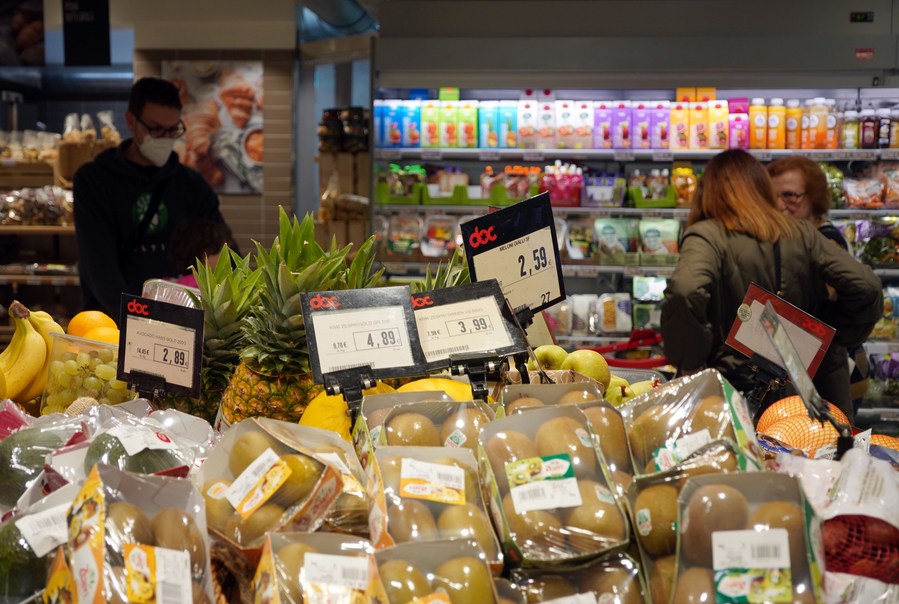Eurozone inflation hits 10.7% in October
 0 Comment(s)
0 Comment(s) Print
Print E-mail Xinhua, November 1, 2022
E-mail Xinhua, November 1, 2022

Inflation in the 19-member eurozone is expected to continue rising in October, hitting double digits, against the backdrop of slowing economic growth in the third quarter of 2022, Eurostat, the European Union's (EU) statistical office, said in a flash estimate on Monday.
Driven mainly by increasing energy prices, October's year-on-year inflation rate is expected to climb to 10.7 percent in the eurozone, from 9.9 percent in September.
Energy is expected to have the highest annual rate, reaching 41.9 percent in October. The annual rate in September was 40.7 percent.
The prices of food, alcohol and tobacco should register a yearly increase of 13.1 percent in October, compared with 11.8 percent in the previous month.
Non-energy industrial goods should record a year-on-year increase in the price of 6 percent, compared to September's 5.5 percent; while the price of services should stay stable, going from a yearly increase of 4.3 percent in September to 4.4 percent in October.
"Overall, there is still clear evidence that the second-round effects of the supply-side shocks to the economy keep pushing up inflation despite moderating demand," Bert Colijn, ING senior economist for the eurozone, commented.
The Baltic countries are hit the hardest by inflation, with 22.4 percent for Estonia, 22 percent for Lithuania and 21.8 percent for Latvia.
While inflation rates are skyrocketing, the eurozone's economic growth should continue to weaken in the third quarter of this year.
Compared with the previous quarter, Eurostat foresees a 0.2 percent growth of gross domestic product (GDP) for the third quarter of 2022 in both the eurozone and the European Union (EU). In the previous quarter, the GDP growth figures were 0.8 percent for the eurozone and 0.7 percent for the EU.
Latvia, Austria and Belgium recorded negative growth of their GDP, -1.7 percent, -0.1 percent and -0.1 percent, respectively.
Though the recovery of tourism in Spain or a renewed interest in investing in France are seen, this shouldn't be enough to counter very low consumer confidence -- which greatly affects retail sales -- higher interest rates and an uncertain economic outlook.
"Overall, the picture remains bleak ... We therefore still expect the economy to contract over the coming quarters," Colijn said.
Last week, the European Central Bank (ECB) increased interest rates by 75 basis points to 1.5 percent to keep inflation in check and to bring the inflation rate closer to its two-percent target.
"With economic conditions weakening and a recession in the making for the winter, we think the ECB is going make its next hike somewhat smaller at 50 basis points," Colijn said.






Go to Forum >>0 Comment(s)